The professionals working for the super-rich
From private tutor to lifestyle consultant, the people who work for the rich and powerful are usually highly specialized, flexible and eager to meet challenging demands
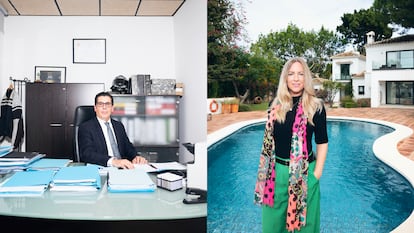
There’s an urban myth that a conservative politician from a high-profile family, publicly known for his good nature, got into his official car one morning in the mid-2000s, whereupon his chauffeur greeted him with a comment on what a nice day he had had. The politician replied dryly that he was the only one who could say whether it had been a good day or not. The next morning, this man had a new chauffeur.
Whether or not this actually happened, the listener is invariably delighted to confirm their preconceptions about the rich and powerful and how they treat their employees. But, according to the professionals who participated in this EL PAÍS report, this reputation is generally undeserved. What they do say is that, apart from the sacrosanct rule of discretion with confidentiality agreements signed, it is vital to read situations and moods correctly, i.e. to know when to take a step back and act as if they are not there.
The many and varied professions involved in tending to the needs of people with high net worth are usually very demanding and require large doses of flexibility and high levels of specialization; try asking Maria Sancerni, a house manager of mansions, about the types of filigree used for napkins. In return, these people are usually well paid and have access to a kind of parallel universe of untold wealth that only a few have access to.
The house manager

Born in the Spanish city of Huesca, Maria Sancerni was a stewardess on private planes and luxury yachts before becoming a house manager. Her role then involved hiring, training and directing all the domestic staff, from the gardener to the butler, and solving any problem, from a broken fence to the replacement of a piece of furniture. She has worked in Saudi Arabia, where she trained the staff of a palace. Now she’s in Marbella, but her employers are moving. “I would like to stay here, but if I see that there is no work, then I will have to go back to Monaco, to Saint-Tropez, back to Saudi Arabia...”
The numbers are however increasing as the super-rich population grows. There are just over 626,000 people in the world with a net worth in excess of $30 million, 113,000 more than in 2019, according to the Wealth Report 2024 by consultancy Knight Frank. If we calculate that the average number of direct employees for each of these family units is 20 — a figure from the Morgan Stanley study published in 2023 that consulted 300 rich and super-rich people in the United States — the result would be a collective of about 12.5 million workers.
The same Morgan Stanley study provides a list of the most common jobs carried out by its team of domestic and property care employees, along with their average salaries. For example, the estate or house manager earns an average of $151,000 a year (including bonuses). Meanwhile, the executive assistant receives about $119,000; the butler, $125,000; a permanent nanny, $85,000; a private chef, $119,000; a gardener, $67,000; and the head of security, about $117,000.
Let’s not forget, however, that while statistical averages give us a general idea of how things work, there are also extremes on both ends of the spectrum. For example, the most popular personal shopper, the one who helps to choose and even directly buys the client’s wardrobe, is not the same as one who specializes in acquiring vintage Ferraris or luxury vintage watches. Then there’s the one who helps to buy art. “We are the link between all the agents: artists, private collections, gallery owners, museums, media...” explains Lucía Ybarra, who has been running an art management consultancy called Ygbart for 12 years together with Rosina Gómez-Baeza, former director of Arcomadrid and Gold Medal for Merit in Fine Arts.
Art consultants
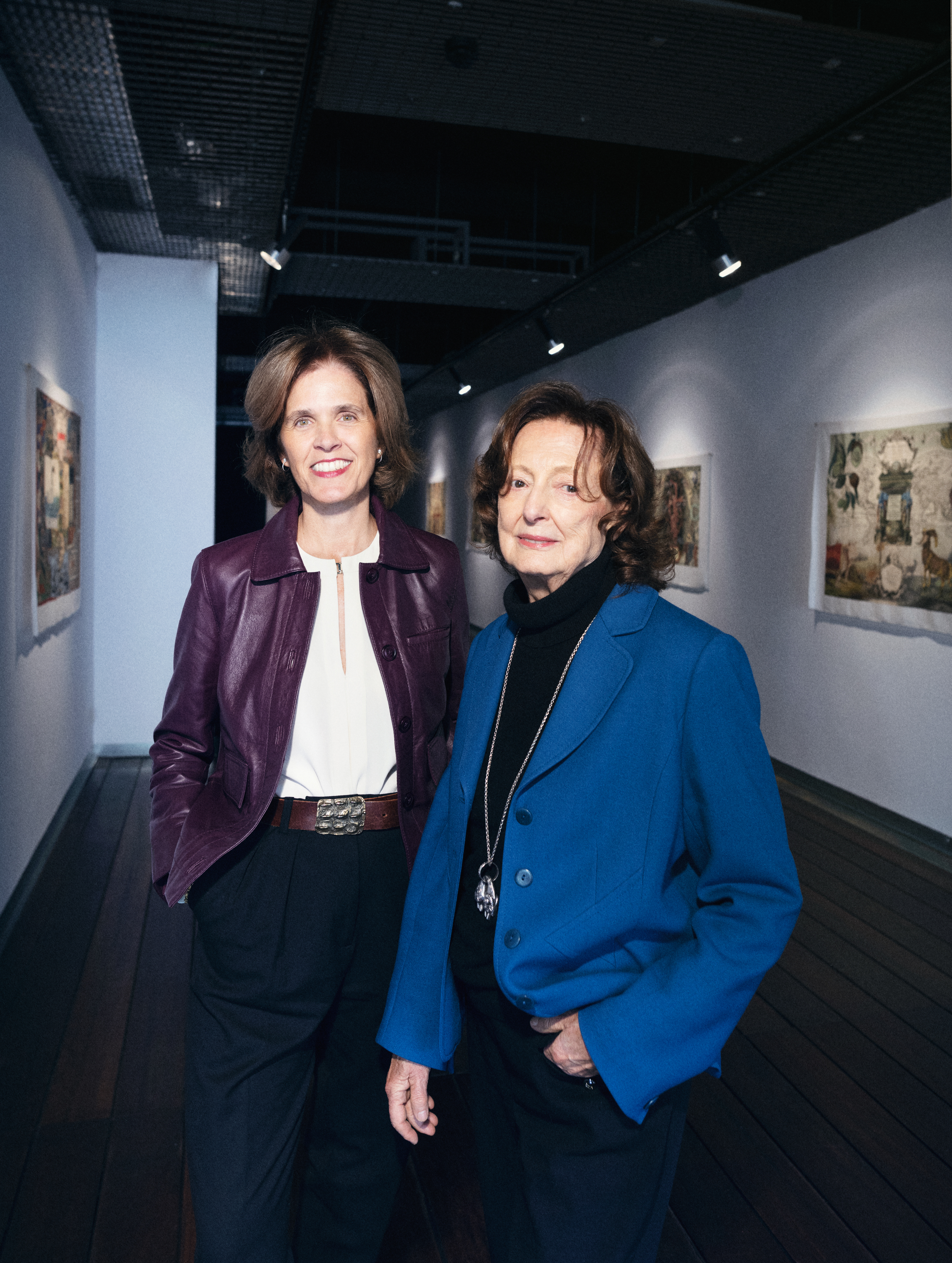
Rosina Gómez-Baeza (right) and Lucía Ybarra have been running an art management consultancy called Ygbart for 12 years. They advise private clients on how best to maintain and grow their collections. “We not only help them to buy, but also to conserve and disseminate,” Ybarra explains, adding that, at times, they are starting from scratch: “When someone tells us ‘I want to make a collection,’ we help them define their objectives,” adds Gómez Baeza, former director of Arcomadrid and Gold Medal for Merit in Fine Arts who poses with Ybarra in the Blanca Berlin gallery in Madrid.
At this point, we have moved a long way from the more widespread concept of the personal shopper. In fact, this employee — with an average salary of around $100,000 a year — is included in the aforementioned report under the same heading as personal assistants and concierges. The latter are in charge of preparing every detail of leisure trips, from booking museum tickets, a table in a restaurant or in the VIP lounge of the club to organizing a yacht excursion, a picnic in a paradisiacal corner or hiring a private chef to take care of breakfasts, lunches and dinners throughout a stay.
Rebecca Nayler explains her role from a luxurious living room at Villa Siroko in Marbella, one of the 70 luxury properties managed by the company for which she works as head concierge, The Luxury Villa Collection. “Some guests want you to prepare absolutely everything for them, but others are more self-sufficient and just want transportation and catering,” she says.
The head of concierges
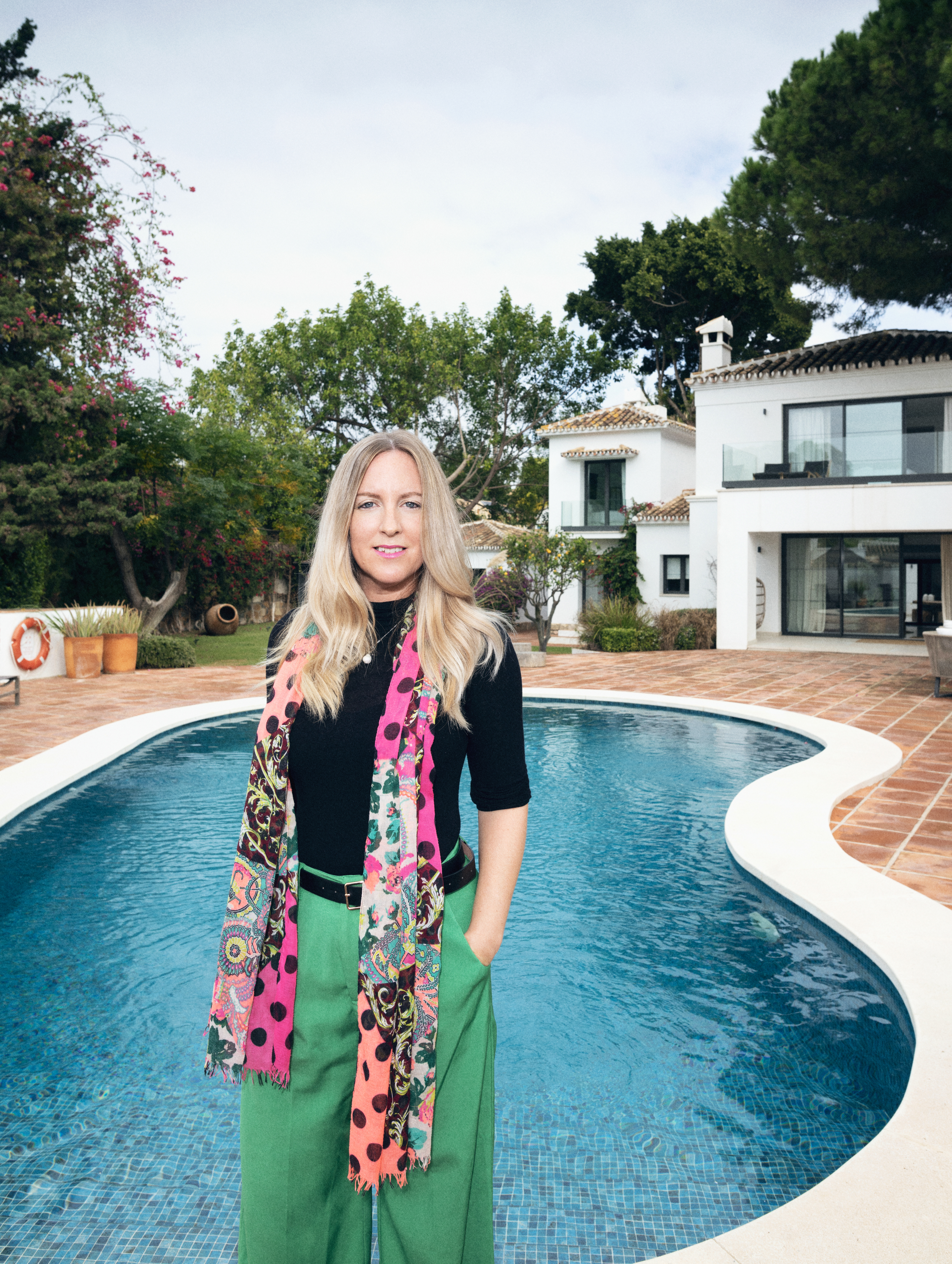
Rebecca Nayler was born in Oxford, England, and has lived in Spain for 13 years. “We concierges basically take care of everything. We hold the guests’ hand through every stage of their vacation. From the moment they book their stay until they leave, we are there for them,” she explains at Villa Siroko in Marbella. Sometimes they ask for tricky things, such as “19 tickets for the Alhambra by the end of the month” and odd things: “Please change the waiter; he's too tall.”
And that is where private chef Paolo Bertucci comes into the picture. From Milan, Bertucci provides culinary services, ranging from the preparation of a special dinner to spending a season with clients cooking for them every day, all of which he does in Marbella and surrounding areas. In the latter role, it is crucial to get as much information as possible before the season begins. “The most complicated thing is the children’s meals,” he explains. “I work a lot on that, because in the end the customer who sees that the children eat will always leave happy.” And not all children are alike: “The Russians and the Nordics, for example, always ask for a lot of crudités for their kids; a dish with a protein, a carbohydrate and vegetables. The Anglo-English are more concerned about them eating something, even if it’s a pizza or a hamburger.”
The private chef
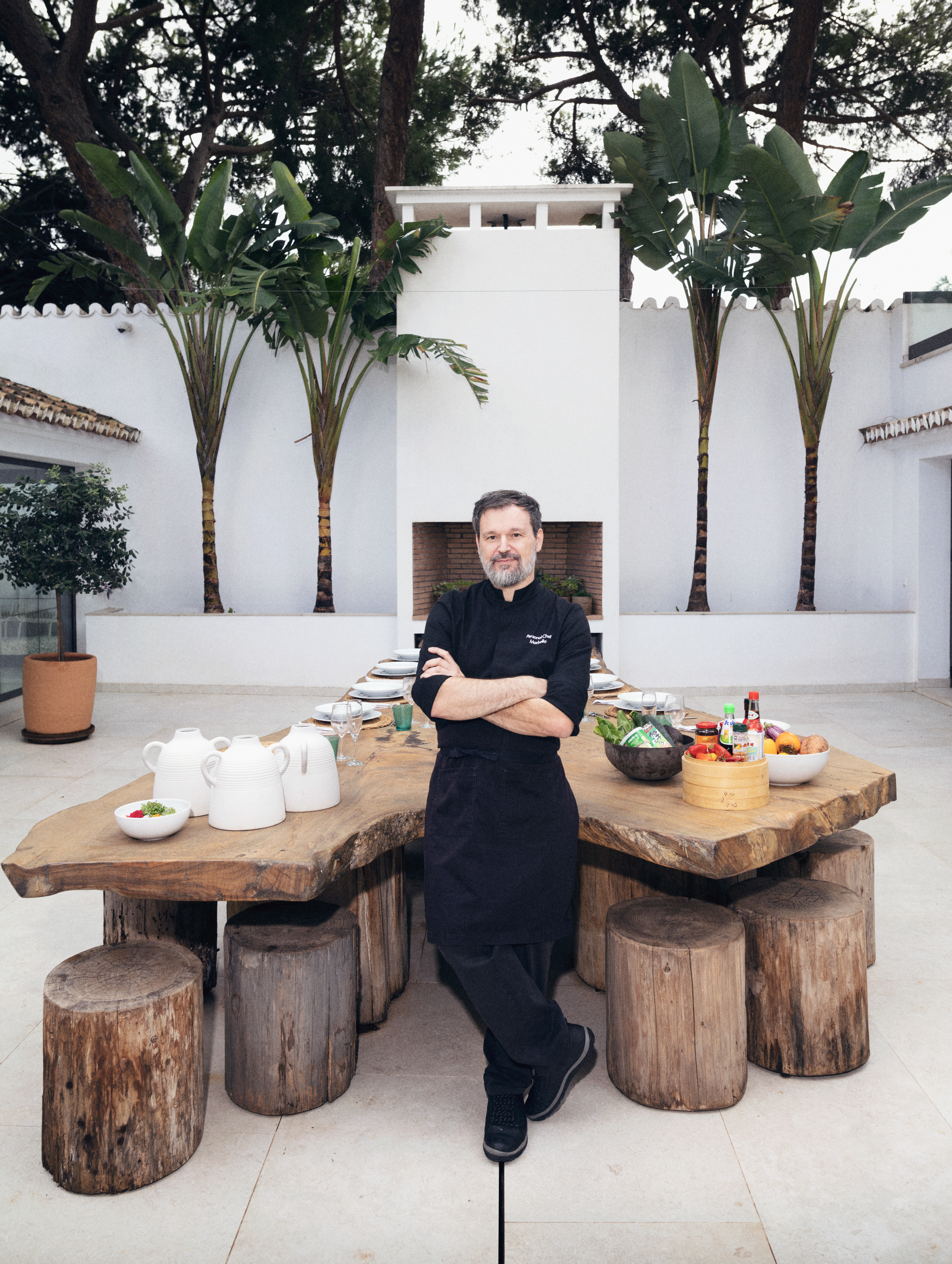
Approaching his thirties, Paolo Bertucci decided to swap out his musical career for chefing. He trained and ended up opening an Asian-Italian fusion restaurant in his native Milan. There he met one of Silvio Berlusconi’s private chefs. “He explained how this world works,” he says. His advice helped Bertucci forge his way when he moved to Spain in 2016. Apart from working as a private chef in and around Marbella, he gives cooking classes. He collaborates with The Luxury Villa Collection and also poses at Villa Siroko in Marbella.
Nayler and Bertucci specialize in caring for wealthy families during their vacations, when they are often not accompanied by their regular employees, says the head concierge. Sometimes the families travel with the children’s nanny, many of whom are registered nurses, especially when the children are infants, explains Junaly Dunadapat, of Marbella-based care services company, Care For Me.
The private nurse
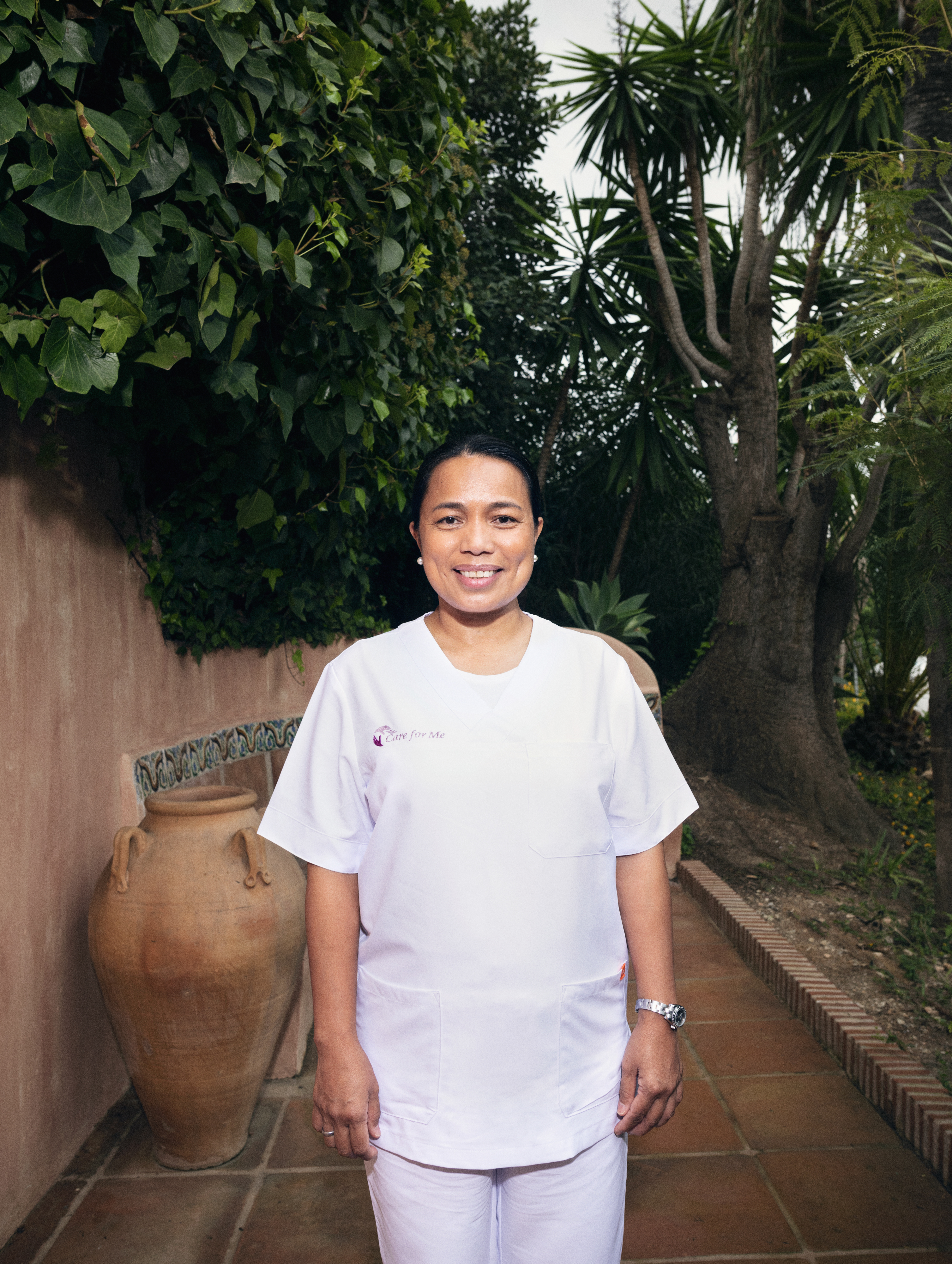
Junaly Dunadapat studied nursing in the Philippines and has worked in Dublin and New York. But when she arrived in Spain — her husband is Spanish — and found herself being paid “five times less” for similar jobs, she decided to respond to an offer to be head nurse at Care for Me in Marbella, a company specializing in VIP clients. “Once the client is convinced you’re offering them the best service, they don’t ask how much it’s worth,” she says. Mind you, it’s such a sensitive service that there has to be a connection. “If they don’t feel it, they’ll tell you right away, as you walk in the door. They’ll say: ‘I’m sorry, I need someone else.’”
When the families’ children are a little older, a tutor may also be required to accompany the family on their travels. For example, Melissa Claire Harvey’s first job was to accompany a family during a sabbatical year around the world: Switzerland, Canada, the Peruvian Amazon, Chile, Argentina (including Patogonia and Perito Moreno), the Galapagos Islands, Australia and Japan. Her job is very delicate and sometimes requires flexibility, both in terms of duties and schedules.
“With the children, you often get to become a friend, sometimes also with the parents, but you always have to keep a certain professional distance. And there are also families with whom you don’t have that direct relationship, when you are their employee, but that’s okay too,” she says. All of her jobs as a “private educator” have come through the agency Tutors International, which defines itself on its website as “an elite private tutoring company, specializing in private residential tutoring.”
The tutor
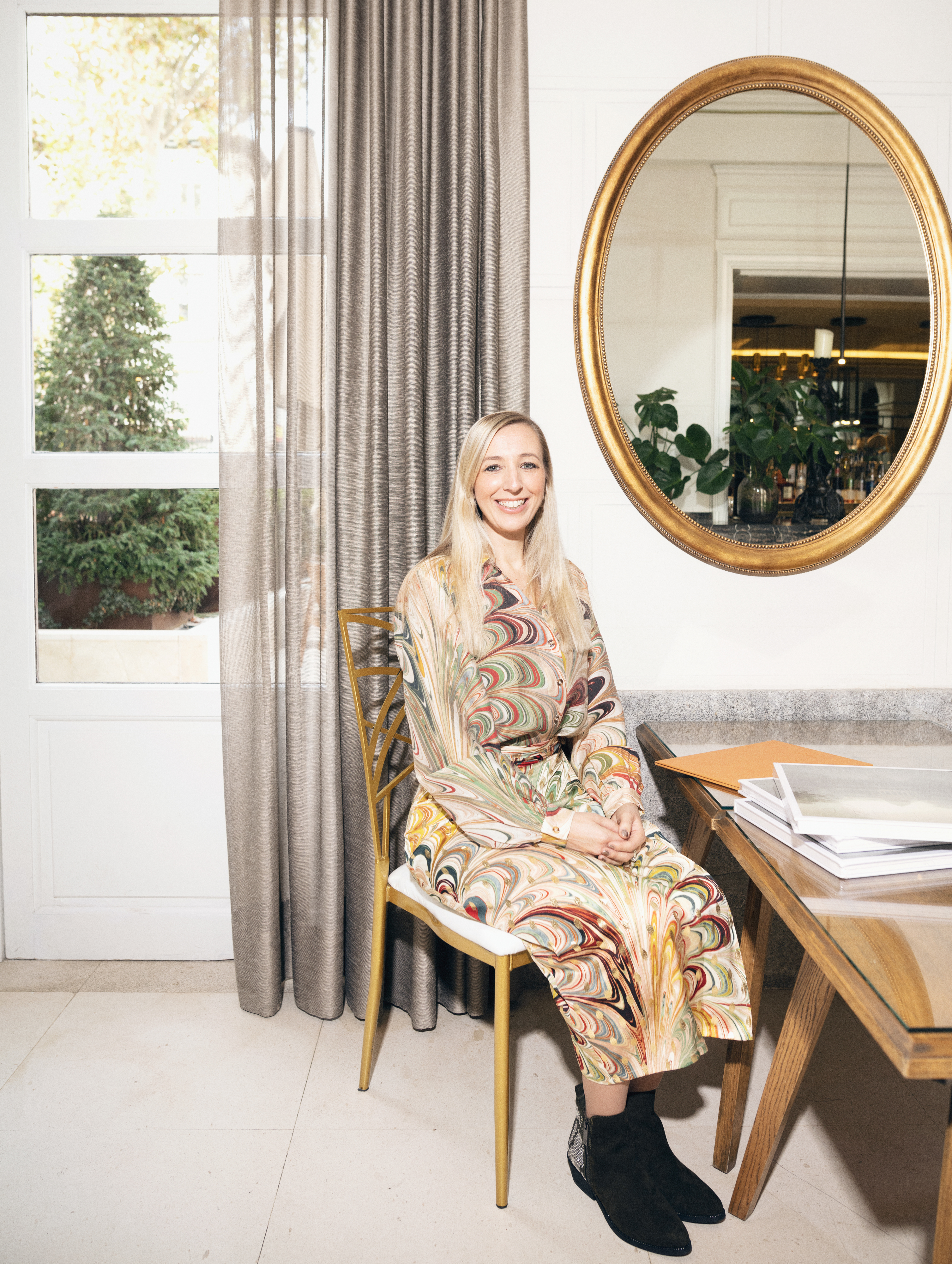
Melissa Clare Harvey has taught on planes, trains, hotel rooms and even in the middle of the jungle. English by birth, she was working in a school in Marbella when she had the opportunity to accompany a family on a trip around the world. She was selected from hundreds of candidates to teach a 5-year-old and a 10-year-old girl for a year in English, French and Spanish. “It was unique,” she says. She has also been a private tutor in South Africa and Italy. Now, busy with her own family, she teaches online, offers homeschooling programs and is setting up a multilingual consultancy for families. However, if an opportunity arose for her to return to work as a private tutor where she could travel with her entire family, she would accept it without a second thought, she says.
Specialized agencies are often the almost unavoidable gateway to this type of employment. They serve as a reliable filter for long and demanding recruitment processes, weeding out the hundreds of candidates who may apply. The final decision is taken by the super-rich client. “Sometimes they delegate, but if they don’t like the successful candidate, they’ll ask for the decision to be revised and that’s it,” explains Maria Sancerni. In general, security services work on their own circuits, within specialized companies. In these cases, no matter how much they want to advertise, word of mouth is what decides who gets employed and who doesn’t.
David Gonzalez and Alberto Torres are in this line of work, but with a twist. From the interior design studio Portobello Street, they have built secret rooms, panic rooms and bunkers. “We started making panic rooms when Latin American millionaires started arriving in Madrid. They come from a violent environment and are used to having them,” Gonzalez explains. “Eastern European clients, however, generally want spaces in which to hide things that no one, no matter how hard they try, will ever find if they don’t know where they are,” adds Torres.
The designers of secret rooms
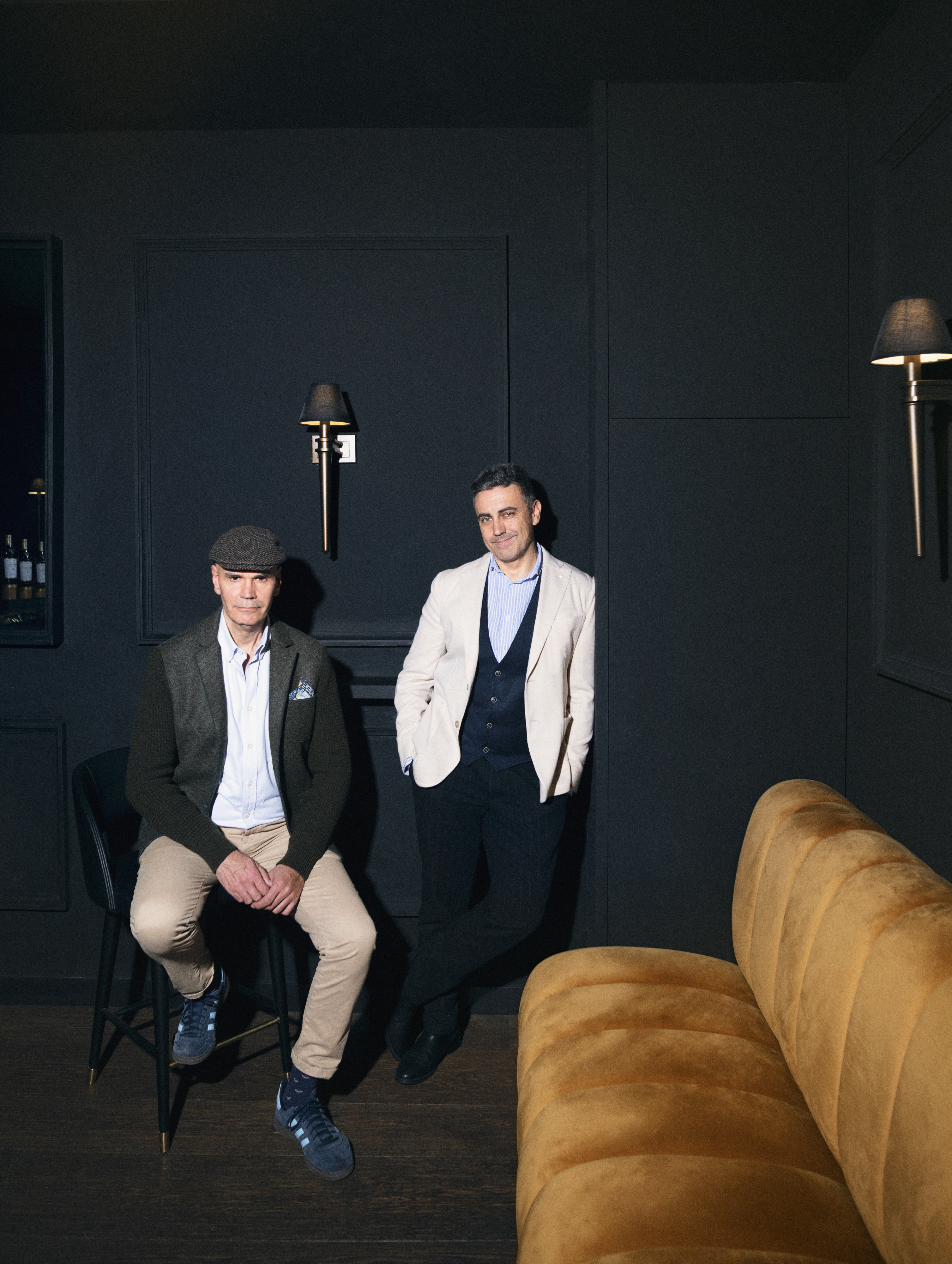
David González (left) and Alberto Torres form the Portobello Street interior design studio. Their projects regarding secret rooms, panic rooms and bunkers, require them to sign confidentiality agreements. That’s why they pose in the secret space they created in the Pugil Store tailor shop in Madrid. “Often they start by saying they want a private place and you ask them: a panic room, right? Well, yes,” says González. Other times they simply want something very private: “We have reproduced the room from 'Fifty Shades of Grey,'” Torres adds.
There are many companies in many different fields offering to make life easier for the super-rich. This is probably why it is so important for them to constantly look for ways to specialize in an already hyper-specialized environment; for example, by revamping classic services. This is the case of lifestyle consulting, a fashionable concept which is used to refer to a range of things, including coaching — how to improve your life from the point of view of sport, nutrition etc. Sometimes, lifestyle consulting can even encompass protocol: “I’ve worked with foreign politicians, members of royal families and important business professionals — I recently worked with a group of Asian bankers — to give them an insight into Western etiquette. I have also trained the domestic staff of important figures,” explains Julia Esteve Boyd, who offers lifestyle consulting. Isabel Talavera, for her part, has decided to apply lifestyle consulting to the real estate world, through her project Absolutely Marbella by Isabel Talavera.
The lifestyle consultant
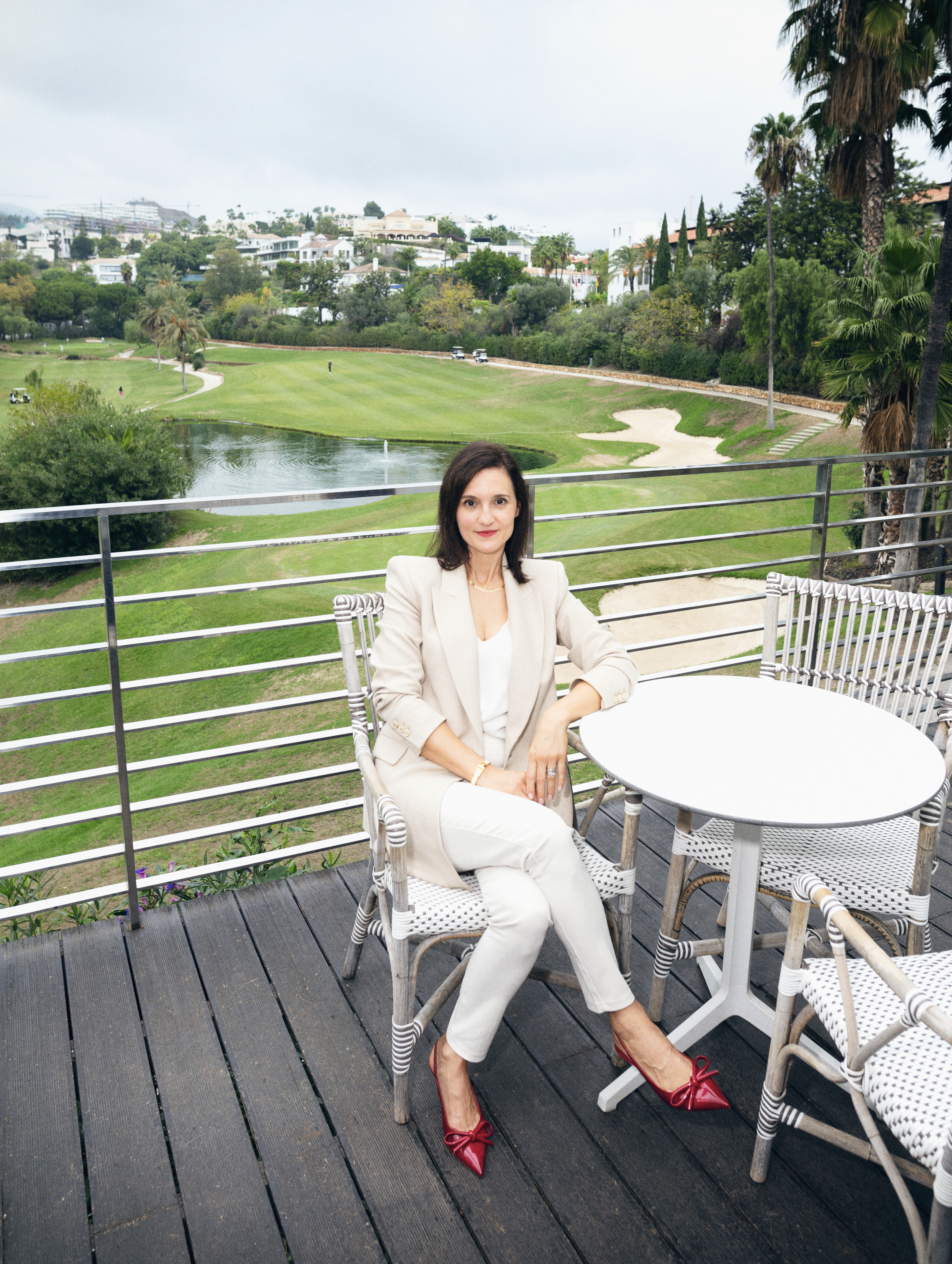
Isabel Talavera applies lifestyle consulting to real estate in Marbella. This means helping clients to find a property taking into account what lifestyle they are looking for: more family-oriented, or focused on sports, leisure... After years in London specializing in the luxury sector, she is very clear about how to deal with VIP clients: “Personalization, exclusivity and differentiation. The luxury client does not want what everyone else is looking for,” she explains at the Westin La Quinta golf club in Marbella.
These local specialists often work in conjunction with family offices. Juan de Dios Orozco López, CEO of La Escuela del Lujo, says that in the Anglo-English world, family offices are in charge of managing these complicated networks of professionals. In Spain, family offices are basically the companies created by the super-rich to manage their wealth and, sometimes, as Orozco says, to attend to all the needs of the family, especially if the money is “old” money and there are many family members to be taken into account.
The financial advisor
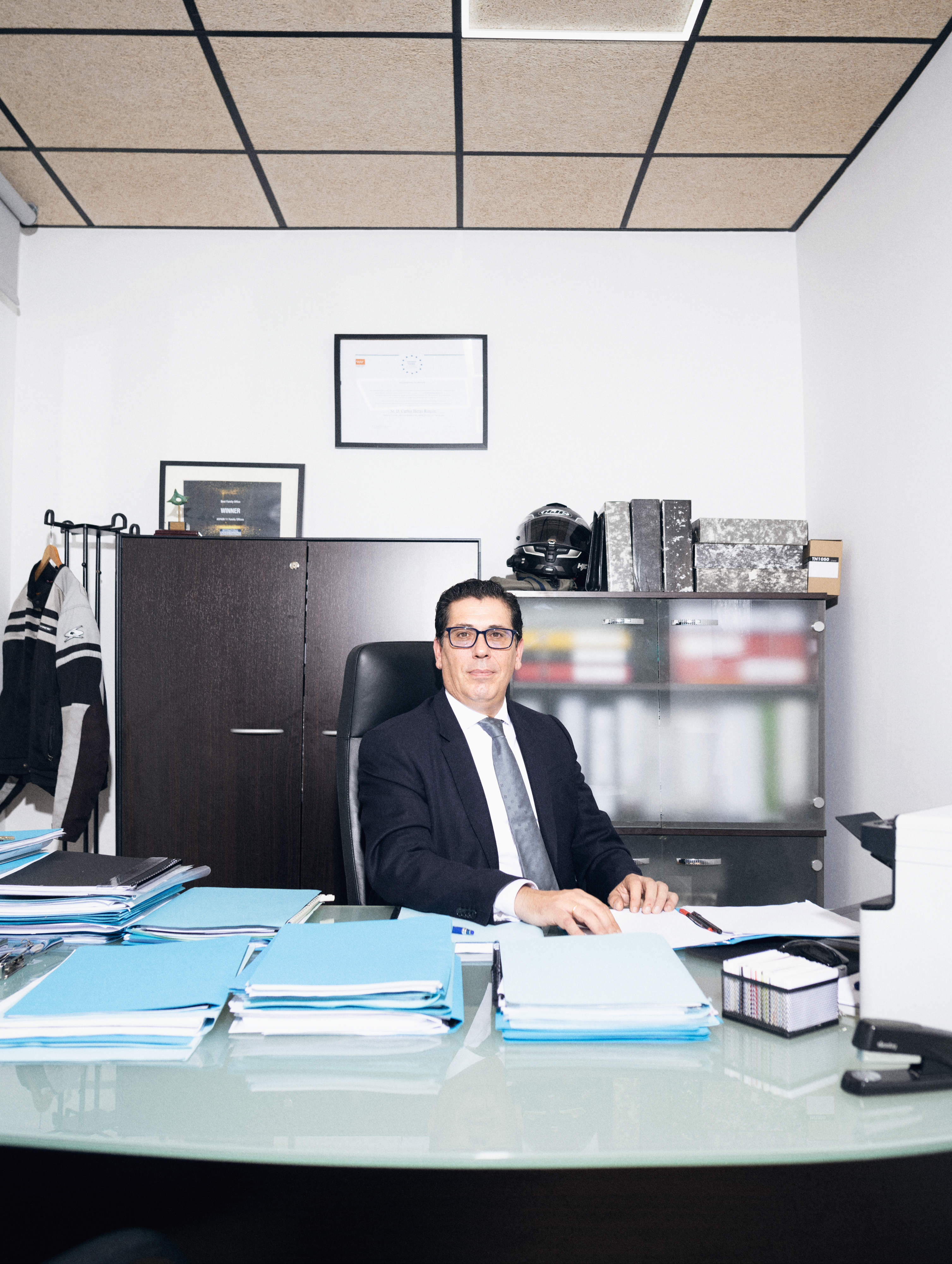
Carlos Heras is CEO of Aspain 11, a Madrid-based firm specializing in family offices dealing in the management of large fortunes. “We not only advise on money, we also take into account the entire wealth and family structure to give continuity to the wealth so it continues to grow. A family office is an entity that manages the whole family from a global point of view, creating structures, optimizing taxation and looking for specialized products,” he explains. Confidentiality is paramount in his business, he adds, as he turns over all the folders in the office to avoid revealing any of his clients' names.
Sign up for our weekly newsletter to get more English-language news coverage from EL PAÍS USA Edition
Tu suscripción se está usando en otro dispositivo
¿Quieres añadir otro usuario a tu suscripción?
Si continúas leyendo en este dispositivo, no se podrá leer en el otro.
FlechaTu suscripción se está usando en otro dispositivo y solo puedes acceder a EL PAÍS desde un dispositivo a la vez.
Si quieres compartir tu cuenta, cambia tu suscripción a la modalidad Premium, así podrás añadir otro usuario. Cada uno accederá con su propia cuenta de email, lo que os permitirá personalizar vuestra experiencia en EL PAÍS.
¿Tienes una suscripción de empresa? Accede aquí para contratar más cuentas.
En el caso de no saber quién está usando tu cuenta, te recomendamos cambiar tu contraseña aquí.
Si decides continuar compartiendo tu cuenta, este mensaje se mostrará en tu dispositivo y en el de la otra persona que está usando tu cuenta de forma indefinida, afectando a tu experiencia de lectura. Puedes consultar aquí los términos y condiciones de la suscripción digital.









































